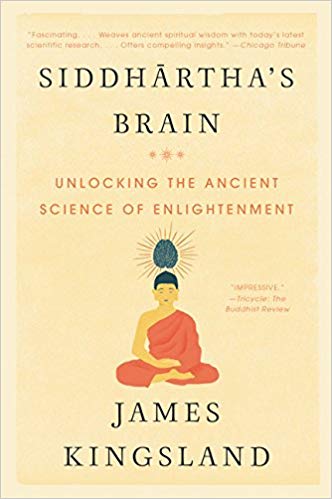Siddhartha’s Brain: Unlocking the Ancient Science of Enlightenmen Audiobook by James Kingsland

text
Kingsland builds his particular niche by attaching the dots between the mentors of the Buddha and also scientific discoveries concerning reflection and also mindfulness. There are numerous publications that inform the life story of Siddhartha Gautama from different point of views (e.g. notoriously guides by Hermann Hesse and also Karen Armstrong.) There are likewise a variety of publications reporting the science of reflection (e.g. Herbert Benson and Sat Bir Singh Khalsa.) Siddhartha’s Brain: Unlocking the Ancient Science of Enlightenmen Audiobook by James Kingsland Online.Nonetheless, it’s not so common for the subjects to be overlapped.
There’s a reason that this middle path hasn’t been even more widely researched. While Buddhism is perhaps one of the most science-friendly of the significant world faiths, there’s always a gulf between spiritual as well as clinical reasoning. The writer has to figure out how to chart a course through rough waters. Publications appealing to spiritual seekers are likely to come across as insubstantial fluff to the clinically minded reader, and books interesting skeptics are most likely to feel materialistic and cool (and also, probably, naive) to the fortune-teller. The Buddha’s trainings about the need for the method to be experiential, rather than faith-based, uses an one-of-a-kind opportunity to step this tightrope. In addition, the Dalai Lama’s determination to promote a discussion in between scientific research and Buddhism has actually been critical too. One can easily reserve controversial issues like reincarnation and also karmic legislation as they aren’t necessary to the worth of mindfulness.
Guide consists of twelve phases. The phases typically begin with a tale or mentor from the life of Buddha, and after that go on to check out the relevant lesson in more information with certain focus on any type of pertinent clinical explorations that sustain claimed trainings.
The tale of Buddha starts in a well-off, high-caste household with young Siddhartha Gautama being kept from seeing the impacts of aging, disease, as well as death. When the young Siddartha, nevertheless, sees these things, it is an effective intro to the ideas of impermanence as well as suffering that will certainly play a central role in his future mentors. Phase 1 starts this intro and additionally provides a summary of guide. Chapter two continues it. In Phase 3, Kingsland describes a little of the recognized history of reflection, though its beginnings are shed to time.
Chapter 4 is qualified “The Second Dart” and it talks about the Buddha’s training of the very same name– the second dart being one’s mental response to an event (i.e. the initial dart.) Phase 5 checks out the inquiry of whether there is a self– and, if so, of what way. A core idea within Buddhism is that the self is illusory.
Chapter 6 gets to the heart of the matter by discussing the system of mindfulness meditation and what has actually happened referred to as MBCT (Mindfulness Based Cognitive Therapy)– a nonreligious approach to using mindfulness to enhance wellness. The following phase tells the tale of how a team of fire worshippers concerned comply with the Buddha after he explained that everything (their senses, thoughts, and feelings) were aflame with yearning, disgust, and also deception, and that springboards into a conversation of how mindfulness is made use of to minimize desire and addiction.
Phase 8 informs the tale of an attempt to eliminate the Buddha through a mad, drunk elephant, as well as the Buddha’s thwarting of the plot using tranquility and compassion. Siddhartha’s Brain: Unlocking the Ancient Science of Enlightenmen Audio Book Free. As one might have thought, the chapter has to do with moderating emotions, equally as the Buddha regulated his fear prior to the elephant.
Phase 9 takes a ride right into evolutionary biology to question just how the mismatch between what human beings evolved to do and also what we perform in the modern world creates mental diseases and also exactly how mindfulness can assist mitigate the issue. Phase 10 has to do with metacognition, or the capacity to observe as well as contemplate our very own mental experience– i.e. considering thoughts. Chapter 11 is about cognition as well as decision-making, and also the function that reflection can play in enhancing our efficiency in this domain name. The last chapter reviews the Buddhist fertilization of fatality and enlightenment. It isn’t till this factor that there’s a significant divergence in between the Buddhist and clinical viewpoints. There is a conversation of the Buddha’s trainings stressing that idea in suggestions from on high is not so vital as experience.